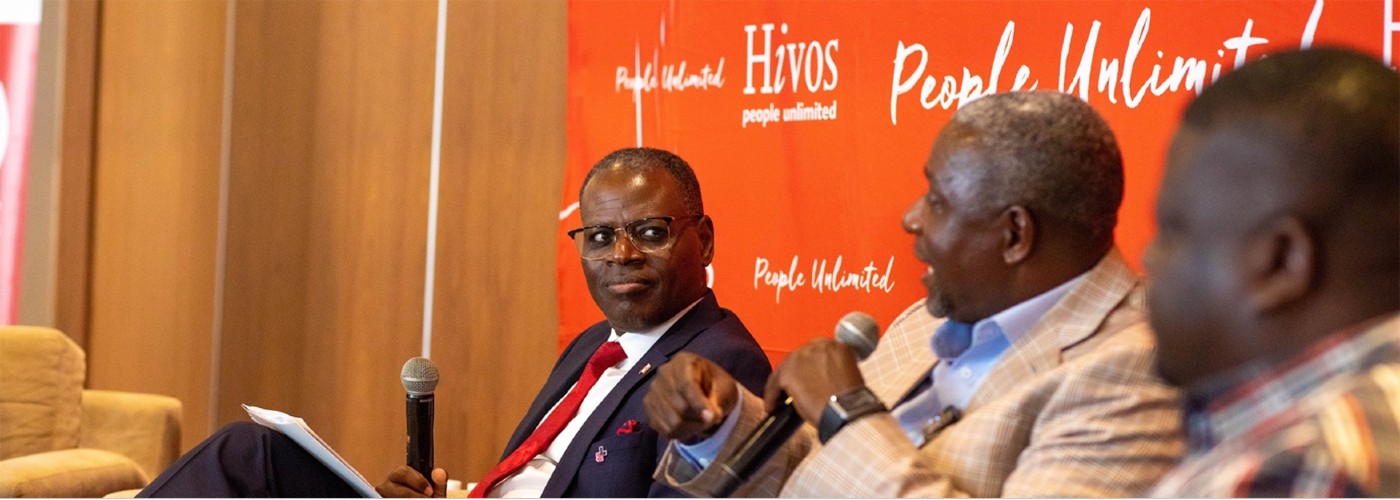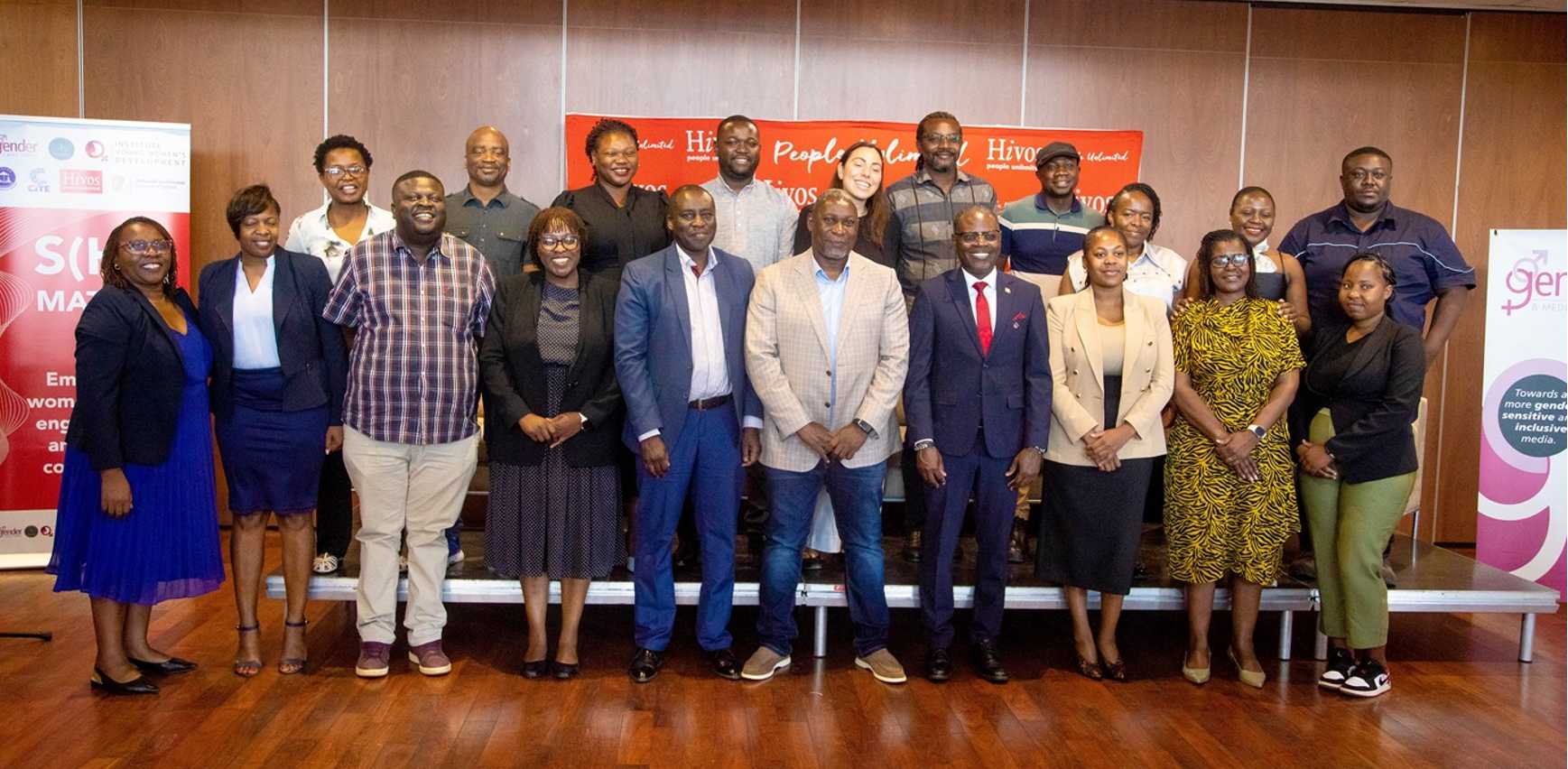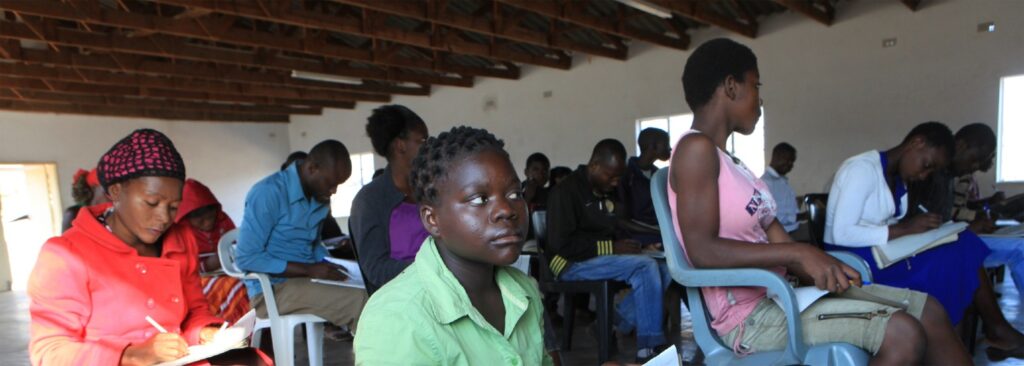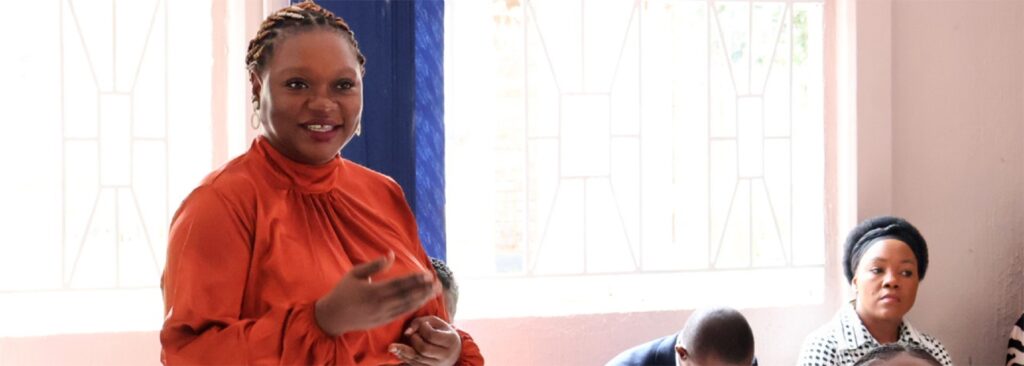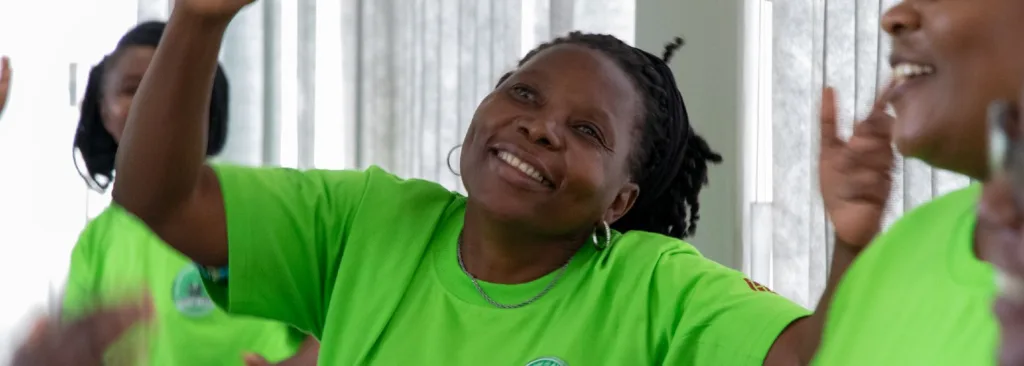The International Day of Democracy is celebrated around the world on 15 September each year. While discussions on democracy and gender equality are common, Hivos in Southern Africa and Gender and Media Connect (GMC) decided to mark the occasion unconventionally by putting an all-male panel in the hot seat.
By Winston Chaniwa and Rumbidzayi C. Machimbirike
For many in the room, the setup itself was a statement. Gender equality conversations are usually dominated by women’s voices because of their lived experiences. So we wanted to ask three men to reflect on their role in building a more inclusive democracy in Zimbabwe.
Focus on women’s participation
The discussion, led by GMC director Patience Zirima, brought together Hon. Supa Mandiwanzira (MP for Nyanga South), Canadian Ambassador to Zimbabwe His Excellency Adler Aristilde, and Nigel Nyamutumbu of the Media Alliance of Zimbabwe. Their perspectives were candid, at times provocative, and often contrasting, but together they paint a vivid picture of the tensions and opportunities at the intersection of democracy and gender.
Hon. Mandiwanzira opened the conversation by highlighting a challenge often faced by women. “Democracy is not always fair to women. It is a dictatorship by the majority,” he argued, pointing to how Zimbabwe’s electoral system systematically sidelines women. Quotas, he argued, have been a necessary “tweak” – a kind of imposed fairness to correct that imbalance.
Picking up the thread, Nigel Nyamutumbu offered a sharp rebuttal. While he agreed that democracy is under strain globally, he pushed back against the idea that it disadvantages women. To him, the issue lies deeper. “For democracy to be meaningful, it must do more than count votes. It must protect minorities and dismantle structures that entrench inequality. True democracy is about realizing the power of citizens, including women, to correct historic injustices,” he stressed.
More than just numbers
Ambassador Adler Aristilde brought a personal dimension. Growing up surrounded by “confident girls who excelled,” he never entertained the notion that women were less capable. It was only when he led a newsroom at a young age that he recognized the need for gender balance to broaden perspectives and better serve audiences. “Diversity is like inviting everyone to a party,” he reflected, “but inclusion is inviting them to the dance floor.”
For the Ambassador, inclusion is about more than numbers. It’s about participation, presence, and power. As #HeForShe Champion in Zimbabwe, Ambassador Aristilde pledged to keep mobilizing men in all sectors to make concrete commitments within their institutions to advance gender equality.
Divergent opinions and a shared recognition
The three men did not agree on everything, but their willingness to wrestle with uncomfortable questions underscored the importance of male voices in the gender equality conversation. The general discussion that followed also offered divergent perspectives. Yet, there was a shared recognition: much more must be done to shift mindsets, challenge entrenched stereotypes, and open spaces where every person plays a role in advancing democracy and gender equality.
In her closing remarks, GMC deputy board chairperson and Commissioner with the Zimbabwe Media Commission, Susan Makore, focused on the heart of the matter. Allies, she said, don’t compete with one another but “find common ground and work together.” This point hit home with other attendees, such as the UNESCO Zimbabwe team led by Al-Amin Yusuph, Hivos Southern Africa Director Joy Mabenge, and various members of the media fraternity. Their collaboration is essential to achieve gender parity across all spheres of life.
While acknowledging that democracy is under threat globally, Ms. Makore urged the audience to celebrate the progress the country has made so far and challenged the media to keep key issues in the spotlight.
Democracy requires gender balance
By the end of the afternoon, one thing was clear: democracy without gender equality is incomplete. The panel did not offer easy answers, but it reminded us that men have a critical role to play not as bystanders, but as active allies in challenging patriarchy and reshaping political and social spaces.
As Zimbabwe and indeed the world grapples with the fragility of democracy, the call is to move from quotas to true inclusion. And that requires not just policy tweaks, but a cultural shift where men and women walk onto the dance floor together.
This event was part of the S(HE) Matters project, funded by the Embassy of Ireland in Pretoria.

